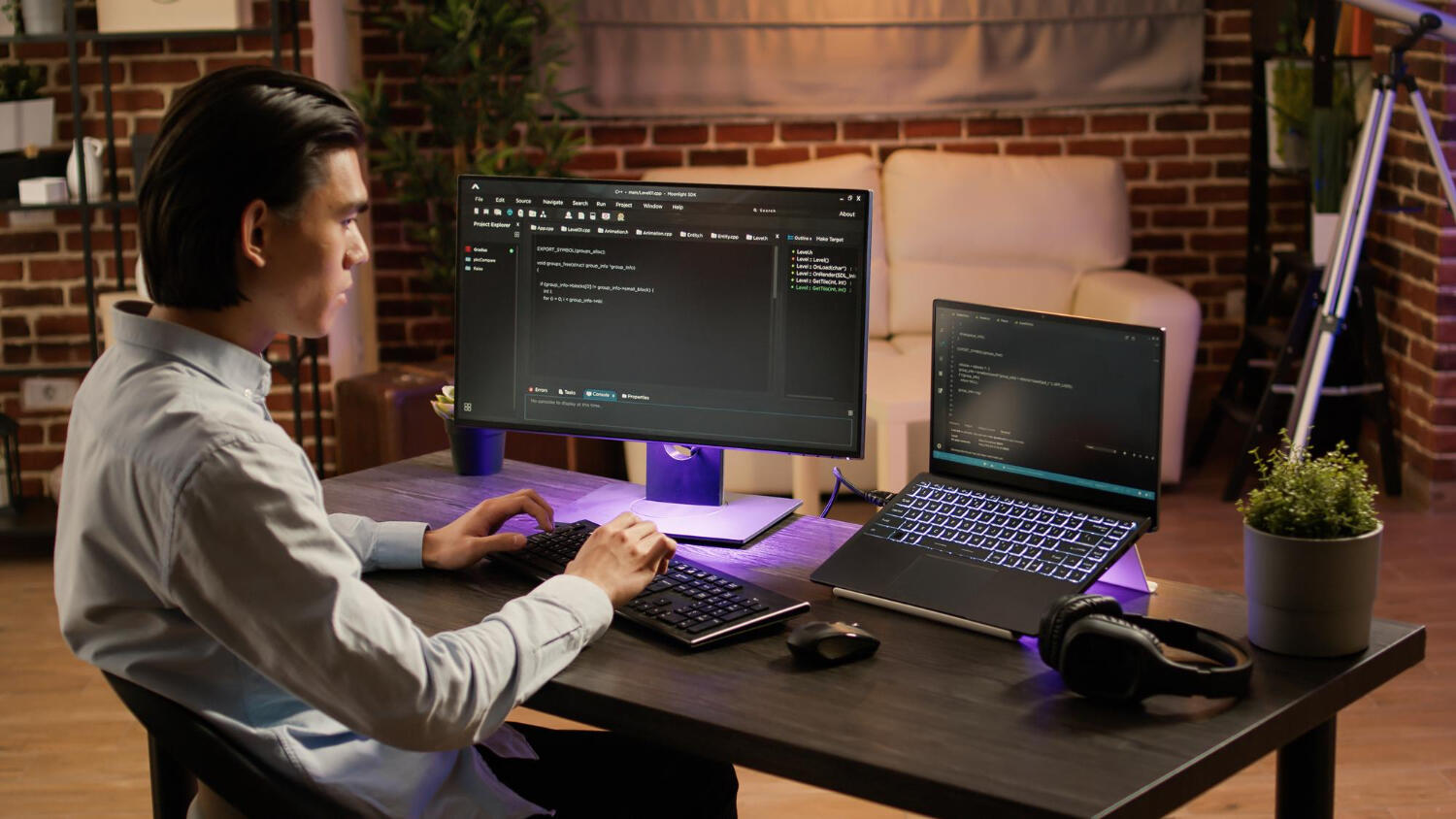In today’s world, coding is becoming a crucial skill, leading more individuals to seek out coding knowledge due to the diverse career opportunities it offers. Whether your goal is to dive into software development, become a developer, or create websites, coding skills are essential. There are just so many benefits to learning coding.
Having coding expertise can give you a competitive advantage, enabling you to work more autonomously and enjoy greater flexibility in your career trajectory.
If you've attempted to learn coding, you know it can be quite frustrating and overwhelming. However, online learning resources help ease this process by allowing you to set your own pace, ask for assistance whenever necessary, and revisit lessons until you truly understand how and why your code functions as it does.
While there are countless online resources available for learning to code, choosing the right ones can be challenging, particularly for beginners.
If you’re eager to start your coding journey, here are some fantastic online resources to consider.

Codecademy
Codecademy is a well-known website where people can learn to code through hands-on lessons. They offer courses in a range of computer programming languages, such as Python, which is great for beginners and data science; JavaScript, essential for web development; and HTML/CSS, which are the building blocks of websites.
Beyond these, Codecademy also teaches languages that web developers often work with, like PHP, which is commonly used for server-side scripting, and Ruby on Rails, a popular web application framework.
While Codecademy is free to use, allowing anyone to start learning coding without any cost, they also offer a Premium membership. This paid option gives users access to additional features, more in-depth lessons, advanced courses that can help them further develop their coding skills and official certificates to showcase their skills.
Codecademy uses a hands-on method that helps beginners grasp coding ideas and start creating their own projects. You learn new concepts step by step, and you get chances to practice what you’ve learned right away.
Their courses are perfect for those just starting out in coding, but there’s also room to explore more advanced topics as you progress. It uses a friendly, easy-to-understand teaching style without getting too complicated.
freeCodeCamp
freeCodeCamp is a non-profit organisation that provides free online coding courses and certifications in areas like web design, data visualisation, and machine learning. Their curriculum offers 3,000 hours of hands-on, guided learning to help you earn 12 certifications in programming skills such as HTML, CSS, JavaScript, and Python. They also feature over 10,000 short, focused tutorials on specific topics. Plus, their YouTube channel has nearly 1,500 videos, with new content added weekly, providing hours of learning material.
This platform uses a project-based learning method. Each course starts with an introductory video and includes reading materials, quizzes, and a hands-on coding project. Students work on their projects and submit them once they're done.
However, freeCodeCamp is more like a self-study environment than a typical classroom. Since there are no instructors, it can feel like you're studying alone at a library. While this encourages independence, you might find it tough to grasp difficult concepts without immediate help. Instead of teachers, freeCodeCamp has a supportive online community where you can get assistance, but it might not provide the direct guidance that some learners need.

Code.org
Code.org is a non-profit website that helps kids learn to code. It can be used by everyone since everyone starts as a beginner when learning to code.
It was started in 2013 by Hadi and Ali Partovi to teach young people the basics of computer science. The site offers courses that cover essential programming skills, including variables, arrays, and functions.
There are many fun activities to make learning enjoyable. For instance, kids can play a game called “Guess My Number” to practice counting while having fun. Besides K-12 coding lessons, the site also offers resources for finding free courses in JavaScript and Python, teaching skills like how to work with data.
We found that the course catalogue is specifically designed for beginner programmers who want to learn Python. However, it's suitable for learners of all ages and skill levels. The courses use a block system, letting students drag and drop blocks into the editing area.

The Odin Project
The Odin Project is a completely free resource that teaches you how to create websites and web apps from the ground up. You learn by working on actual projects.
It covers everything you need to become a web developer, including HTML for building web pages, CSS for designing them, JavaScript for adding interactivity, and Ruby for backend programming. You’ll also explore frameworks like Ruby on Rails and React, which help you build more advanced sites quickly.
At The Odin Project, you learn by creating real websites and apps. You’ll do coding tasks and projects, which is a fantastic way to grasp how things work. The material is developed by experts and is very detailed. If you’re a beginner, it’s a good idea to start with the introductory programming courses that guide you step-by-step from the basics.
Each section includes multiple tasks that let students apply what they’ve learned. Once they finish their assignments, they can share them for feedback from other members. If anyone runs into issues while using the platform, a support team is available to help.
Pluralsight
Pluralsight has a ton of courses on different coding languages like JavaScript, Python, Java, C#, and more. They also dive into tools that help you build websites and apps, like React and Angular.
You check out videos to pick up new coding skills, then you get to jump in and code on your own. They’ve got these fun quizzes and projects to help you understand what you’re learning.
The lessons are extremely detailed and created by people who really know their stuff when it comes to coding. They're great for newbies and also for those who already have some coding experience but want to level up.
If you're learning on your own, there are two subscription options: a basic plan and a more advanced one with extra features. If you're part of a group, there’s an annual plan available for everyone, plus more options for teams that want some added perks. You can even check it out for 10 days totally free.
Most of the content is designed for experienced coders, but beginners benefit because there are many free beginner-friendly materials. You can connect with other learners in forums and access guides, downloadable exercises, and quizzes to support your learning alongside the videos.
edX
edX has many different programs, including MOOCs and certificates. MOOCs are free online courses taught by universities that anyone can take from anywhere in the world. In contrast, certificates are specialised courses that require you to pass certain exams to earn them.
They offer beginner courses if you're new, as well as advanced courses on topics like machine learning and data analysis. On edX, you can watch videos, read materials, and complete exercises and quizzes. You'll also tackle coding challenges to apply what you've learned, and you can connect with other learners in discussion forums.
edX partners with top universities like MIT and Harvard to create high-quality courses on many subjects. Some courses provide a basic overview, while others dive into more complex topics. You can access edX courses for free, but if you want to submit assignments or receive certificates, you'll need to pay a fee. Each course has forums where you can ask questions and interact with other students, and there’s support available if you face any challenges.

Web Development for Beginners
This course, created by a developer at CareerFoundry, is aimed at beginners who want to learn coding and see quick results. It's available online for free and doesn't include a mentor.
In just five days or even faster depending on your learning pace, you'll create your first webpage using HTML, CSS, and JavaScript. Once you finish, you'll earn credit toward the full web development program.
This course focuses on results and covers the basics you need to launch your first website. By the end, you'll have a better idea of whether you truly want to pursue web development or if it is just a temporary interest.
Unfortunately, you won't become a web developer in just five days. Like any serious career, it requires a lot of learning and effort to reach the level needed to truly add value to a company. However, this is a great first step, and it won’t cost you anything!
While many online resources can help you pick up coding, nothing can replace having a tutor who can guide you to master it. To excel in coding and programming requires hard work and study, but a Superprof tutor can personalise lessons for you. With thousands of tutors available, you can choose from face-to-face, online, or group sessions. Many offer a free first lesson to discuss your goals, learning style, and needs.
Before contacting a tutor, think about what you need and decide how much you can spend, keeping in mind their location, subject expertise, and experience. When picking a tutor, go with your gut feeling—it's simpler to learn from someone you get along with!
Summarise with AI:














